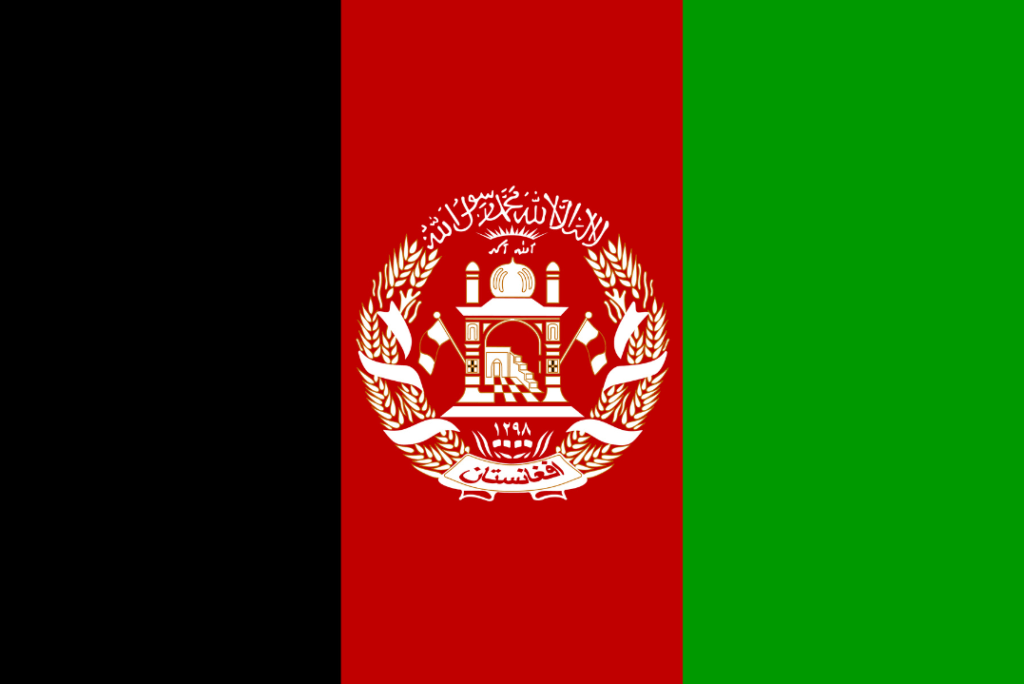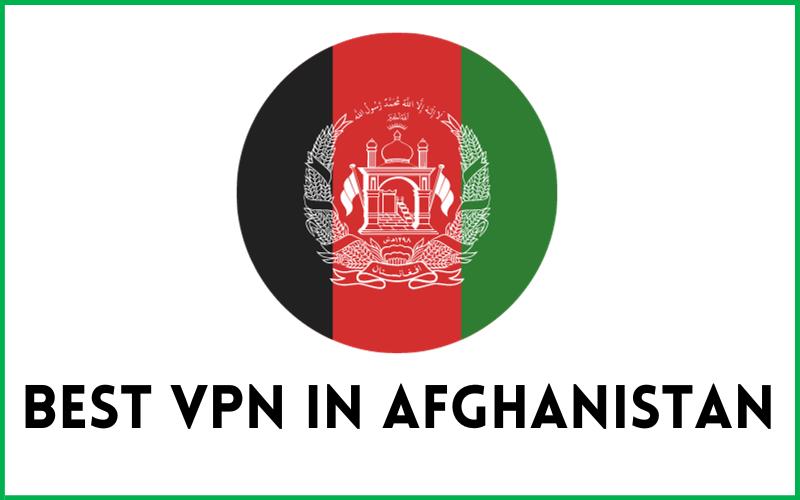The best VPNs in Afghanistan In the wake of oppressive censorship and surveillance in Afghanistan, using a VPN has become a necessity for citizens seeking online freedom. The Islamic Emirate of Afghanistan, particularly the Taliban, exercises stringent control over internet access, implementing blocks on social media, VoIP services, and news websites.
The best VPNs in Afghanistan
Challenges in Afghanistan
The internet landscape in Afghanistan presents numerous challenges for its citizens. The imposition of restrictions by the Islamic Emirate of Afghanistan limits access to essential online platforms, hindering the free flow of information and communication.

Benefits of Using a VPN
A VPN serves as a powerful tool for Afghans facing these challenges. It not only shields users from ISP tracking and government surveillance but also allows them to bypass censorship and access region-locked services. Additionally, a VPN provides a secure environment for data transmission over public WiFi networks, protecting users from potential tracking and hacking threats.
Top Features to Look for in a VPN for Afghanistan
When choosing a VPN for Afghanistan, focusing on specific features is crucial. Optimal security measures, guaranteed privacy, and seamless access to online content are key considerations. Moreover, a VPN’s speed is paramount, ensuring that users can engage in HD streaming, video calls, gaming, and other activities without interruptions.
Quick Summary of Best VPNs for Afghanistan
For those seeking a swift overview, here’s a snapshot of our Top VPN recommendations for Afghanistan:
The best VPNs for Afghanistan

In the following sections, we’ll delve into detailed reviews of each VPN, providing insights into its security features, speed, and overall user experience.
Detailed Reviews of Top VPNs
Table of Contents
How to Choose the Right VPN for Your Needs
Selecting the right VPN involves considering individual preferences and requirements. Users in Afghanistan should assess factors like security protocols, privacy policies, and server locations to ensure the chosen VPN aligns with their needs.
Installation and Setup Guide
For those new to VPNs, here’s a step-by-step guide to installing and setting up the chosen VPN. Empowering users with the knowledge to navigate these tools is essential for a seamless online experience.
Using a VPN Responsibly

While VPNs offer a pathway to freedom and security, using them responsibly is vital. Ethical considerations, adherence to laws, and respect for the rights of others should guide users in their VPN usage.
Outline of the Article
- Introduction
- a brief overview of the censorship and surveillance situation in Afghanistan.
- Importance of using a VPN in such a scenario.
- Challenges in Afghanistan
- Discussion on internet blocks imposed by the Islamic Emirate of Afghanistan.
- Specifics on social media, VoIP, and news website restrictions.
- Benefits of Using a VPN
- Protection from ISP tracking and government surveillance.
- Circumventing censorship and accessing region-locked services.
- Securing data on public wifi.
- Top Features to Look for in a VPN for Afghanistan
- Strong security features.
- Privacy and freedom of access.
- Speed for HD streams, video calls, and gaming.
- Quick Summary of Best VPNs for Afghanistan
- A concise overview of recommended VPNs.
- Detailed Reviews of Top VPNs
- In-depth analysis of each recommended VPN, emphasizing security, speed, and user experience.
- How to Choose the Right VPN for Your Needs
- Factors to consider when selecting a VPN.
- Understanding the specific needs of users in Afghanistan.
- Installation and Setup Guide
- Step-by-step guide on installing and setting up a VPN for users in Afghanistan.
- Using a VPN Responsibly
- Highlighting ethical considerations and responsible usage.
- Frequently Asked Questions (FAQs)
- Address common queries related to VPNs in Afghanistan.
- Conclusion
- Summarize the importance of VPNs in Afghanistan.
- Encouragement for readers to take control of their online privacy.
- Unique FAQ Section
- Craft five unique frequently asked questions related to VPNs in Afghanistan.
- Custom Message
- End with a call-to-action and provide a link for readers to access a VPN.
Afghanistan VPN Testing Methodology: Ensuring Your Online Security

In a market flooded with various VPN options, choosing the right service can be a daunting task for consumers. With numerous providers making exaggerated claims about their offerings, users often find themselves grappling with the challenge of distinguishing a reliable VPN from a subpar one. At Comparitech, we understand these concerns, and our team of expert reviewers employs a rigorous testing methodology to identify VPNs that not only cater to specific use cases, such as Afghanistan, but also deliver well-rounded services encompassing robust security, seamless usability, and excellent value for money. Comparitech
Unveiling Our Testing Methodology
To provide transparency and insight into our evaluation process, we’ve compiled a comprehensive guide on how we test VPNs. For an in-depth understanding, you can refer to our methodology guide. Here, we offer a glimpse into the key criteria we consider when recommending VPNs tailored for Afghanistan.
Strong Privacy Features
Ensuring the utmost privacy is non-negotiable. We recommend VPNs that boast:
- A strict no-logging policy.
- Robust AES encryption.
- A variety of VPN protocols.
- A kill switch for added security.
- DNS leak protection.
- Obfuscation techniques to counter censorship.
Check our FAQ section for a detailed explanation of the security features crucial for users in Afghanistan.
Global Server Network
Our recommendations prioritize VPNs with an extensive global server network. This ensures:
- Access to region-locked or censored services from Afghanistan.
- Availability of IP addresses in a diverse range of countries worldwide.
Apps for All Devices
A user-friendly experience is paramount. Therefore, we recommend VPNs that offer:
- Apps for Windows, Mac, iOS, Android, and Firestick devices.
- Bonus points for Linux apps, setup guides, router compatibility, and browser extensions.
Fantastic Accessibility
Many VPNs face restrictions from popular streaming services. Our testing focuses on recommending VPNs that:
- Are not only secure but also excel in accessibility.
- Bypass restrictions imposed by Netflix, Hulu, BBC iPlayer, HBO Max, ESPN, and more.
Reliable Security in Challenging Environments
Understanding the challenging political landscape in Afghanistan, our top recommendations prioritize services:
- Strong encryption measures.
- Diskless servers.
- Third-party audits verifying the security of their platforms.
Fast Speeds
A VPN should enhance, not hinder, your internet experience. Our chosen VPNs feature:
- Fast Tier-1 servers capable of high throughput.
- No bandwidth restrictions, ensuring seamless streaming, gaming, and video calls.
Excellent Customer Service
Recognizing that not everyone is tech-savvy, our recommendations prioritize services with:
- Responsive customer support via email or live chat.
- Resources such as setup guides and FAQs for user assistance.
Value for Money
Our evaluation extends beyond reliability and security to encompass:
- VPNs that provide excellent value for money.
- Identification of affordable yet exceptional options for users in Afghanistan.
Conclusion: Empowering Your Online Experience
In conclusion, navigating the plethora of VPN options is simplified with our thorough testing methodology. We prioritize your online security and freedom, ensuring that our recommendations meet the unique needs of users in Afghanistan. Trust Comparitech to guide you toward VPNs that not only talk the talk but walk the walk, offering a blend of reliability, security, and affordability.
Navigating the VPN Landscape in Afghanistan: FAQs Unveiled
Can I use a free VPN in Afghanistan?
In the realm of VPNs, the allure of “free” might seem tempting, but in Afghanistan, it comes with significant risks. While a handful of free VPNs exist, the majority pose severe security threats. Studies have uncovered that these free services often lack encryption, suffer from leaks, and harbor vulnerabilities, including tracking libraries and spyware within their apps.
Beyond these technical flaws, the privacy policies of free VPNs can be dubious, permitting the harvesting of user data for profiling purposes. Rather than offering online privacy, unscrupulous free VPNs track users’ online activities, selling this data to third parties like marketing companies and data brokers, creating a revenue stream.
Given the delicate political situation in Afghanistan, citizens must be acutely aware of the dangers associated with using these free VPNs, prominently advertised in search engines and app stores. Using such services may provide a false sense of security, potentially leading to prosecution, incarceration, or even capital punishment, especially when attempting to access content blocked by the Taliban.
What features does a VPN need in Afghanistan?
The use of VPNs globally is primarily driven by the desire for online privacy. However, Afghanistan presents a unique set of challenges due to its political landscape. Individuals seeking to bypass online restrictions must grasp the gravity of their actions, considering the severe consequences imposed by the Taliban.
In Afghanistan, bypassing internet blocks can result in prosecution, incarceration, or violence at the hands of authorities, particularly if you are an activist, political dissident, or a member of the LGBT community engaging with like-minded individuals.
Given these risks, outright recommendations for VPN use in activities that might clash with the law are cautioned against. We urge everyone to conduct thorough research, fully comprehend the implications, and exercise caution in their VPN usage.
Understanding how a VPN works and incorporating it with other technologies like private browsing mode/incognito and privacy-enhancing browser extensions is essential for optimal online privacy. Furthermore, anyone using a VPN in Afghanistan must be well-versed in and utilize the following features, especially when attempting to access content that has been blocked or banned:
- Strong Encryption: Ensure the VPN employs robust encryption methods to safeguard your data.
- No-Logging Policy: Opt for VPNs with a strict no-logging policy to protect your privacy.
- Multi-Protocol Support: A variety of VPN protocols enhances flexibility and security.
- Kill Switch: A crucial feature that disconnects your internet if the VPN connection drops, preventing data exposure.
- DNS Leak Protection: Protect against potential leaks that could compromise your anonymity.
- Obfuscation Techniques: Vital for bypassing censorship and evading detection.
While the use of VPNs in Afghanistan is fraught with challenges and risks, careful consideration of these features can contribute to a safer online experience in a politically sensitive environment.
Essential Features of a Secure VPN: Safeguarding Your Online Privacy
When it comes to choosing a VPN, ensuring robust security features is paramount, especially in regions like Afghanistan where online privacy is at risk. The VPNs we recommend prioritize the following features to guarantee a secure and private online experience:
No Logging Policy
Our recommended VPNs operate on a strict no logging policy. This means that they do not track your source IP address, the IP address of the servers you connect to, or any data passing through their servers. By eliminating any potential paper trail, users are assured that their online activities remain confidential and cannot be traced at a later date.
Strong Encryption
The recommended VPNs offer a choice of protocols, with a preference for OpenVPN or WireGuard in Afghanistan. OpenVPN, in particular, is favored for its compatibility with obfuscation, adding an extra layer of protection. The emphasis on strong encryption ensures that your data is shielded from prying eyes, safeguarding your online communications.
Reliable System-Wide Kill Switch
A reliable kill switch is crucial in preventing accidental data leaks to your ISP. If the connection to the VPN is lost, the system-wide kill switch promptly cuts your internet, mitigating the risk of exposing your web browsing habits to local networks, ISPs, or government agencies. Choosing a VPN with a robust kill switch is essential, as not all services offer equal protection during reconnection.
DNS Leak Protection
DNS requests can potentially reveal your browsing habits, allowing ISPs and authorities to track online activities. Our recommended VPNs address this concern by proxying DNS requests within the encrypted tunnel, handling them through their servers. DNS leak protection ensures that your DNS requests are always secured within the encrypted tunnel, enhancing your privacy and peace of mind.
Obfuscation
In Afghanistan, where the government may scrutinize VPN usage, obfuscation becomes crucial. While a VPN encrypts your data, obfuscation makes your traffic appear like regular HTTPS, employing various scrambling methods to thwart ISPs from detecting VPN use. This feature is pivotal in preventing government suspicion and ensuring that your online activities remain private.
Understanding Censorship and Surveillance by the Taliban in Afghanistan
To navigate the online landscape in Afghanistan, it’s crucial to comprehend how the Taliban enforces censorship and surveillance. The Electronic Crimes Law (2017) criminalizes sharing “anti-Islamic” or “anti-government” content. Combined with the Regulated Telecommunications Act (2002), this empowers authorities to censor content for moral, cultural, and religious reasons. The Afghan Telecommunications Regulatory Authority can block access to content critical of the government and public figures.
In this challenging environment, utilizing a VPN with the aforementioned features becomes not just a choice but a necessity. It empowers users to navigate the digital space securely, ensuring privacy and freedom of expression in the face of censorship and surveillance.
Amidst the challenging digital landscape in Afghanistan, the Taliban’s tight control over ISPs exacerbates concerns about citizens’ online privacy. Mandatory data retention policies enforced by communications providers require the storage of browsing histories, metadata, IP and MAC addresses, and communications data for a staggering two years. This extended data retention period grants the Taliban the capability to closely monitor and scrutinize citizens’ online activities.
Internet Censorship in Afghanistan: What You Need to Know
Websites and Services Blacklisted by ATRA
The Afghan Telecommunications Regulatory Authority (ATRA) plays a significant role in enforcing widespread internet censorship for cultural, religious, moral, and political reasons in Afghanistan. The blacklist includes websites covering:
- Religion
- Politics
- Adult content
- Dating
- Gambling
- Drugs and alcohol
- LGBT issues
Furthermore, ATRA extends its reach to block news websites, social media platforms and posts, blogs, VoIP services, private messengers, and any content critical of Afghanistan, its history, politics, or the Taliban.
Taliban’s Approach to Internet Control
Despite initial concerns of the Taliban shutting down the internet upon regaining control in 2021, the reality has taken a different turn. Rather than a complete shutdown, the Taliban has adopted a strategy of leveraging the internet and social media to control the country’s narrative.
Having learned from past experiences, the Taliban recognizes the value of the Internet in reaching Afghanistan’s interconnected urban population. Instead of outright bans, the group utilizes existing legal frameworks to impose censorship while simultaneously harnessing social media to shape public opinion and suppress dissent. Click Here to Go to the Homepage
As part of this strategy, the Taliban is suspected to have established numerous fake Twitter and Facebook accounts to spread propaganda and reinforce its official narrative. Coupled with censorship measures and intimidation tactics against journalists and dissenters, including the use of force, the Taliban aims to exert totalitarian control over the nation.
Unlikely Shutdown, but Potential for Internet Restrictions
While a complete internet shutdown seems improbable due to the Taliban’s reliance on technology for narrative control, any threat to its dominance could be used as a pretext for widespread blocks or even a total internet blackout. The dynamic relationship between the Taliban and the internet remains a key factor to watch, as the group continues to adapt its strategies to maintain control.
In navigating these challenges, citizens and digital rights advocates in Afghanistan must remain vigilant, understanding the evolving nature of internet governance under Taliban rule.
The impact of the Taliban’s regime on Afghanistan, as highlighted by Amnesty International, has been nothing short of devastating, particularly in the realm of social freedoms. The consequences are dire, ranging from a significant decline in women’s rights to the closure of human rights organizations. The regime’s harsh measures extend to the persecution of peaceful protesters and the use of torture against dissenters, creating an environment marked by fear and suppression. Notably, the imposition of Sharia law has resulted in public floggings and executions, further exacerbating the erosion of fundamental human rights.
Beyond the severe decline in social rights, there has been a noticeable absence of unbiased news, restrictions on the right to public demonstration, and a notable inability for citizens to actively participate in public life. These restrictions contribute to a stifling atmosphere where the exchange of ideas and the pursuit of independent expression are curtailed.
Adding to the grim social realities, the Taliban’s rule has triggered a staggering increase in poverty levels. According to recent statistics, a staggering 97% of Afghans now find themselves living in poverty, a stark contrast to the 47% reported in 2020. This rapid escalation in poverty further compounds the challenges faced by the already beleaguered population, pushing many to the brink of destitution.
According to Freedom House, which assigns a freedom rating to countries worldwide, Afghanistan now holds a dismal score of just 10 out of 100. This places the country among the most oppressive and perilous nations globally, highlighting the dire consequences of the Taliban’s rule on the freedom and well-being of its citizens.
As the international community observes the unfolding situation in Afghanistan, it becomes increasingly evident that urgent attention and action are required to address the humanitarian crises and human rights violations perpetrated by the Taliban’s regime.







Pingback: Surfshark VPN Router The Best Service 100%Your Digital Secur